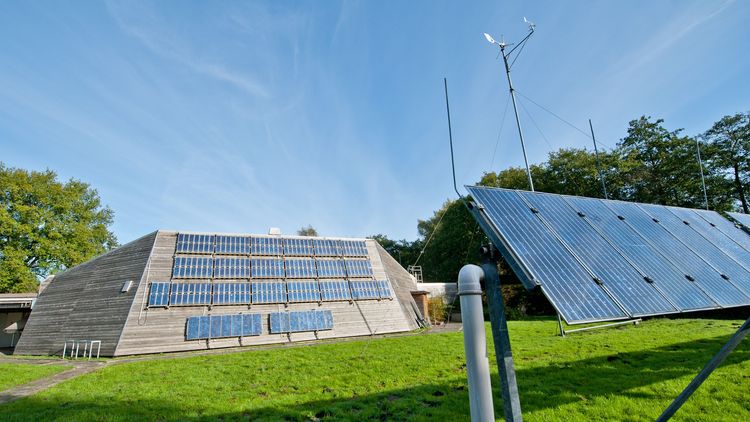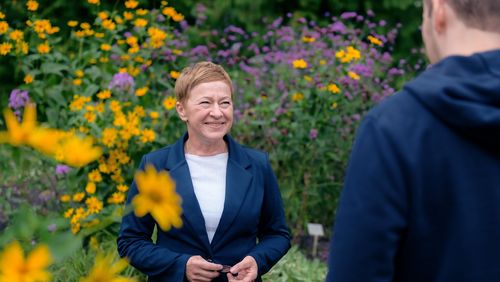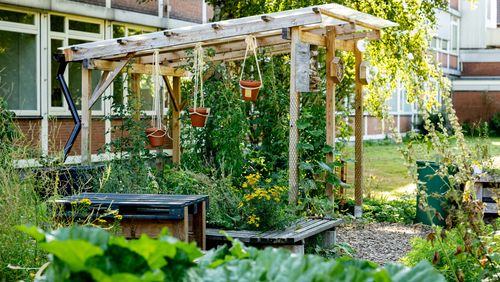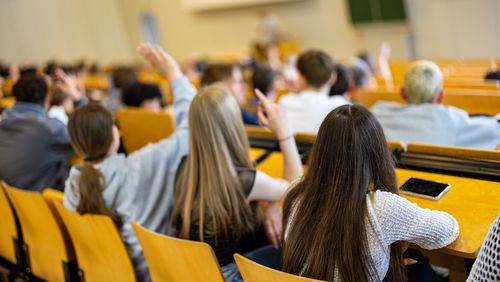It is 30 years now since the University of Oldenburg first launched its “Postgraduate Programme Renewable Energy”. Around 95 percent of the students on the course come from abroad.
Electric lights, television, working on the computer – inconspicuous solar panels connected to batteries are making this possible even in the most remote corners of Bolivia. Diana Maldonado talks with enthusiasm about how she has brought electricity to villages in this area. As an employee of the development organisation "Energetica – Energía para el desarollo" ("Energetica - Energy for Development"), she helped install the panels and explained to villagers how they work. "After this experience it was clear to me that I wanted to continue working in the field of renewable energies," she says. She already had a degree in environmental engineering, but she wanted to broaden her scientific background. So she left Bolivia to come to Germany and has been enrolled on the University of Oldenburg’s Master's degree course "Postgraduate Programme Renewable Energy" (PPRE) since October 2019.
The university first offered the course in 1987 – at a time when climate change and renewable energies were more of a peripheral issue. Nowadays there are similar programmes at many universities around the world. However, the Oldenburg programme remains unique. The programme’s director, Herena Torio, emphasises its international profile: "Our course is primarily aimed at students from developing countries."
Today, 95 percent of the 25 or so students enrolled on the programme each year come to Germany from overseas, mainly Latin America, Africa and Asia. About a third of these students have been awarded a full scholarship by the German Academic Exchange Service (DAAD) for their studies. Places on the course, which is taught in English, are in high demand: the university received 800 applications for the coming winter semester alone.
From system integration to energy meteorology
The programme is oriented towards the university’s focus research areas and is under continuous development. "The technical possibilities in the construction of wind and solar plants have now been almost exhausted," Torio explains. "This means that these topics hardly feature in today's research, and the focus has shifted to interdisciplinary questions". For example, how can electricity from wind or solar plants be fed into the grid even more efficiently? How can weather forecasts be used to estimate how much electricity is likely to be generated over the next few days? It is this type of question that the students investigate in the modules "System Integration" and "Energy Meteorology". Since last year, the resilience of renewable energies has also become a key topic: the main question here is how to keep electricity grids up and running in a crisis situation, such as a cyber attack.
The interdisciplinary approach is also reflected in the opening up of the programme to research areas outside the natural sciences: students can now also transfer credits for courses from the Master's programme "Sustainability Economics and Management", for example. This expanded scope is one of the reasons why the course duration has en extended from two semesters to the current four semesters. And whereas the same curriculum used to apply for all students in the programme, now they can now choose between various specialisations.
Career perspectives: mechanical engineering or politics?
This flexibility also makes sense because the students on the course tend to come from very different backgrounds. The vast majority have already worked outside the academic sector before starting the Master's programme. Some, like Maldonado, have already worked in the renewable energy sector. Others, including many engineers, have worked mainly with fossil fuels such as oil, gas and coal. By taking this course they want to explore new career paths.
Most of the graduates still return to their home country, but the proportion of those who stay in Germany for some time after completing the programme is increasing. "We are observing that more and more students want to do a doctorate in Germany," reports Edu Knagge, Student Coordinator for the programme. Knagge also organises "Career Days" where students can meet representatives of German companies and apply for internships – practical experience is a mandatory component of the programme.
Despite the crisis in the solar and wind energy industry, there are still interesting job prospects for these students in Germany. Precisely because demand is shrinking here, companies are opening up new markets abroad. "Our graduates can mediate between German companies and their foreign partners," says Knagge. But also those who return to their home country can choose from a wide spectrum of options, from mechanical engineering to management and politics.
So what is happening with the programme in the coronavirus crisis? "We will definitely enrol 25 students again, and they will also come to Oldenburg – the only question is when," says Knagge. After online teaching already got off to a good start in the summer semester 2020, a hybrid semester is planned from October onwards in which online and classroom teaching complement each other. For example, laboratory experiments could be offered in compact courses once the students are back on campus.




